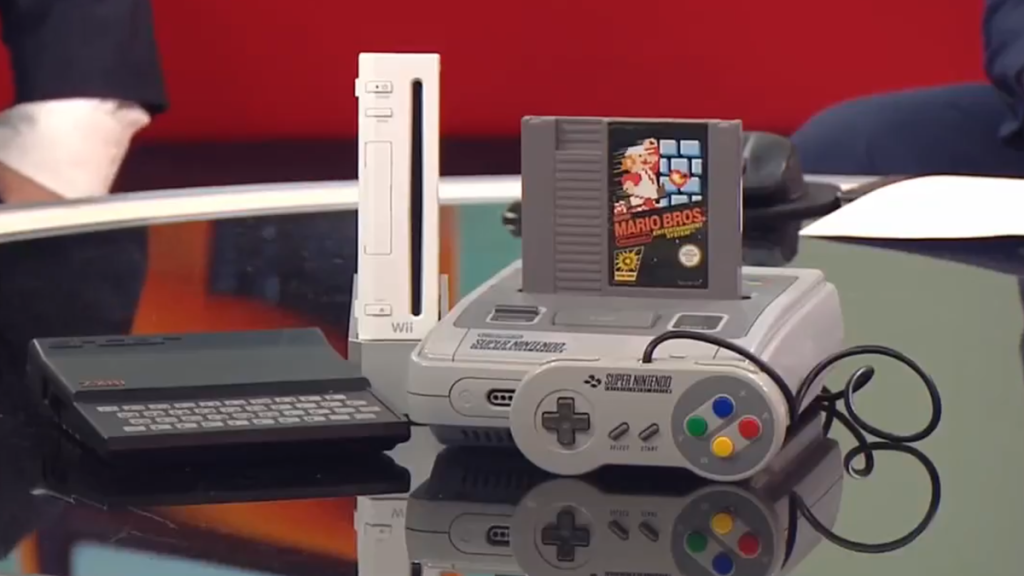In a recent segment on BBC Breakfast, the nostalgia for retro gaming took center stage, igniting a discussion about the return of classic consoles and games. Nick Poole, head of UKIE (the Association for UK Interactive Entertainment), shared insights into the rising trend of players returning to older gaming systems as a refuge from the complexities of modern gaming. This trend highlights not just a yearning for simpler gaming experiences but also a sense of community and the love for games that shaped the industry.
Rising Nostalgia for Classic Gaming
The current resurgence of retro gaming can be attributed to various factors, including the overwhelming nature of modern video games, characterized by their complex mechanics, in-game purchases, and online interactions. Many gamers, particularly those who grew up in the late ’80s and early ’90s, find solace in the simplicity of games like Super Mario Bros. and Pac-Man, which provided straightforward enjoyment without the added pressures of online competition and continuous updates. As Nick Poole articulated, “Older titles and classic consoles are back in demand. Retro gaming taps into a powerful sense of nostalgia and community, offering players a way to reconnect with their past.”
The Broadcasting Blunder
The BBC Breakfast segment aimed to celebrate this retro revival, but it quickly veered off track due to an unfortunate display mishap. The segment featured a ZX81, a Nintendo Wii, and a Super Nintendo Entertainment System (SNES) with an NES cartridge stuffed into it—an analogy likened to fitting a VHS tape into a DVD player. This mix-up didn’t sit well with viewers who expected a more accurate representation of gaming history. As UKIE pointed out in their LinkedIn post regarding the segment, “We couldn’t adjust it whilst on air.” This blunder has drawn comparisons to those all-too-familiar stereotypes about “nerdy” gamers and misinformed broadcasters.
Community and Market Impact
The retro gaming community is thriving, with platforms like Steam allowing gamers to rediscover classics via digital downloads. According to recent Statista data, the digital distribution of older games has increased significantly in recent years. There has also been a notable increase in interest for retro consoles like the SNES Classic Edition, with sales reportedly surpassing 4 million units since its release, showcasing the demand for nostalgia-driven products.
Additionally, the return to retro gaming isn’t merely about nostalgia; it emphasizes a growing desire for social connections. Players are engaging in local multiplayer experiences reminiscent of couch co-op sessions, sharing gaming moments with friends and family in a way that modern gaming often overlooks. This sentiment aligns with findings from a Entertainment Software Association study that noted community and social interaction as primary factors driving players back to classic titles.
Technical Considerations and Compatibility Issues
Despite the allure of retro gaming, technical hiccups also arise when discussing these older systems. For instance, the SNES’s inability to support NES games was a significant hurdle when it launched, complicating the transition for parents and gamers alike. This lack of backwards compatibility marked a pivotal moment in gaming history, influencing how consoles were marketed and sold. Today’s gamers enjoy a vastly different experience, particularly with systems like the Nintendo Switch, which promotes compatibility with both new and older titles. This not only enhances user experience but also signifies progress in console design and consumer expectations.
Conclusion: The Future of Retro Gaming
The recent segment on BBC Breakfast has sparked conversations about the enduring appeal of retro gaming. As players return to their roots, the potential for a deeper community connection, coupled with the successful marketing of retro products, suggests a bright future for this niche. Enthusiasts are likely to continue celebrating and advocating for these classic games, ensuring that the experiences of yesteryears remain a vital part of gaming culture, while also educating new generations of gamers about the rich history of the industry.
As the gaming landscape evolves, it will be essential to strike a balance between the intricacies of modern titles and the simplicity that retro games offer. For many, including those featured in the BBC segment, exploring this retro revival provides a necessary escape, reminding players of the joy that first drew them into the world of gaming.

